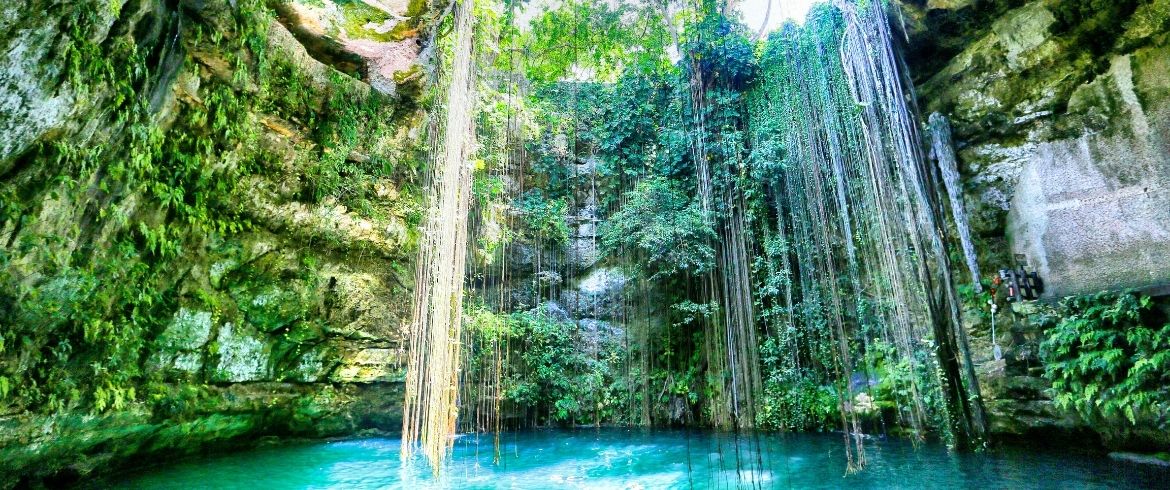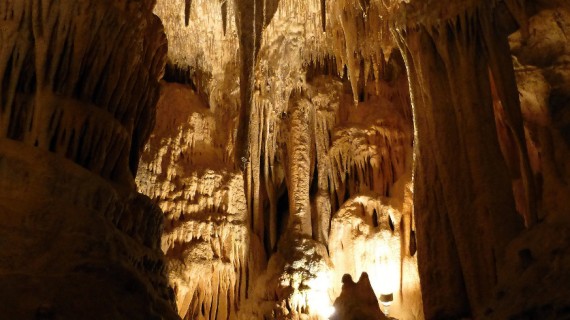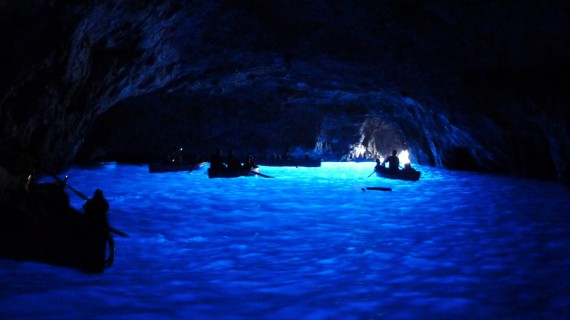The Yucatán Peninsula, Mexico, is famous for its beautiful beaches, unspoiled nature, and its Mayan ruins off the coast. Today we’ll discover the Cenotes, caves symbol of Mayan culture, and of the peninsula itself.
Visiting Mexico is such a unique experience, I assure you. I went there, and I felt sincerely welcomed by the locals. During my trip to Yucatán, something that definitely caught my attention was the so-called Cenotes, caves of limestone origin formed over time. You may wonder what is so special about these caves. Now I’ll tell you.
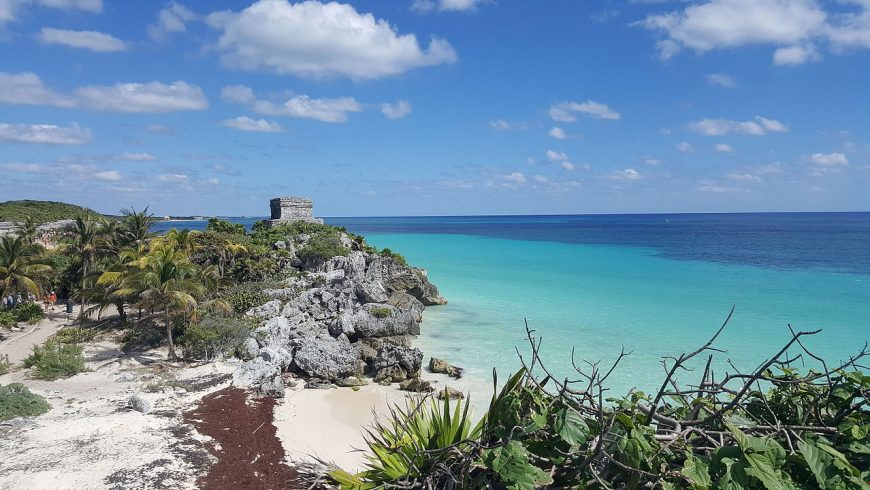
Cenotes: Nothing But Caves?
Once upon a time, the Yucatán Peninsula was submerged, and only during the Ice Age did it emerge. This change of territory led to the creation of caves and underground rivers, now still connected for thousands of kilometers. These caves, called Cenotes, represent the spots where it is possible to meet the underground streams and observe a rich ecosystem of stalactites, stalagmites, and animal species.

Many of these Cenotes are completely open, while others are caves with stairs carved into the rock as the only access. In the latter, the light makes its way through natural openings from the “ceiling” of the Cenotes giving mystic lighting effects.

Cenotes: Sanctuaries of the Mayan Civilization
Land of the greatest civilizations ever existed, Mexico is home to the Mayan, Aztec, and Inca dynasties. More specifically, the Yucatán territory belonged to the Maya, which considered the Cenotes a sacred place. These caves represented an important source of fresh water and a way to relate with the gods. Many gold jewelry, precious objects, and textiles have been brought to light from its depths, and there are several stories of human sacrifices connected to these natural sanctuaries.
Now that we know all about these natural architectures, let’s discover the 4 most unique Cenotes of the peninsula!
Gran Cenote

The Gran Cenote of Tulum is one of the most famous Cenotes and will leave you breathless with its crystal clear water. Here you’ll have the opportunity to swim among fish and turtles and snorkel. What’s more, local guides will make you discover the beautifies of the seabed by diving tours.
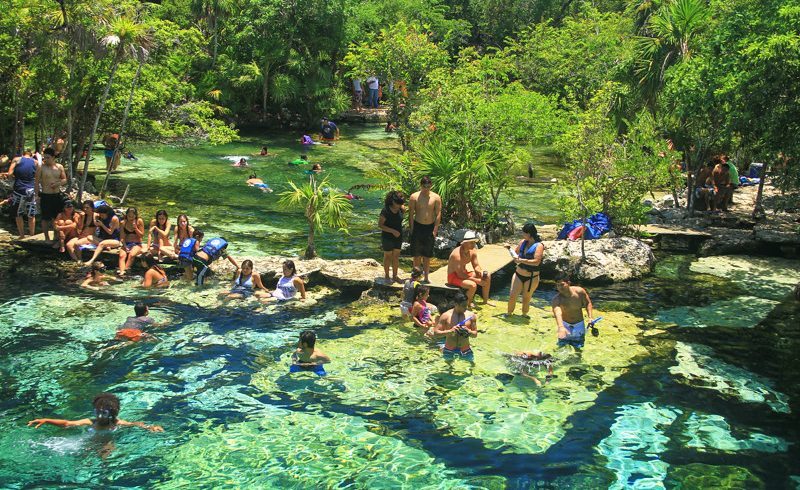
If, on the other hand, you prefer to stay out of the water, don’t worry! You’ll find nice areas for a relaxing break and rich vegetation to welcome you.
How to get here: Gran Cenote – Google Maps
Cenote Sac Actun
If you’re feeling more adventurous and ready for discovery, Cenote Sac Actun is for you!
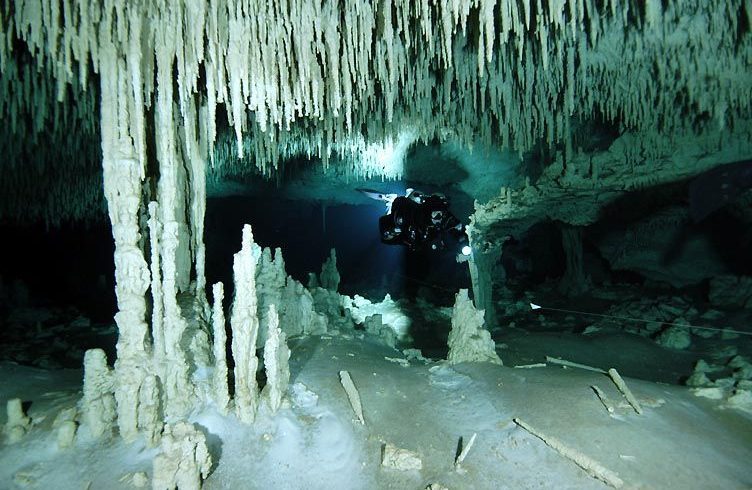
Sac Actun is characterized by numerous stalactites and stalagmites that cover the entire surface of the cave. With the deepest point at 101.2 meters, it holds the record as the longest underwater cave in the world at 346 kilometers long.
How to get here: Cenotes Sac Actún – Google Maps
Cenote Ik Kil
Ik Kil, in Mayan “place of the wind“, is a park rich in bird species such as Toucans, Toh birds, Loros, Cenzontles, and many others. Among the forest, the Cenote stands out with its 48 meters of depth. Moreover, Ik Kil is one of the most mystical Cenotes of the Yucatán because of the jewels and gold objects found in the depths.
How to get here: Cenote Ik Kil – Google Maps

Cenote Jardin del Eden
Just as the name itself, Garden of Eden, here you will be in paradise. This Cenote is open and is a whole with the surrounding vegetation. With aquatic plants and small fish, there is the possibility to snorkel, dive from a height of 4 meters or more and cool off in this natural pool.
In the middle of the Cenote, you will find large rocks that once formed the roof of the cave. This is the perfect place to take a break and enjoy the Mexican sun.
How to get here: Cenote, Jardín Del Eden – Google Maps

From the most peaceful Cenote to the most “extreme” one, there are more than 6 thousand of these unique caves. Discover them all and immerse yourself in the beauty of the Yucatán Peninsula, Mexico.
Cover image: photo via Getty Image, Canva Pro
